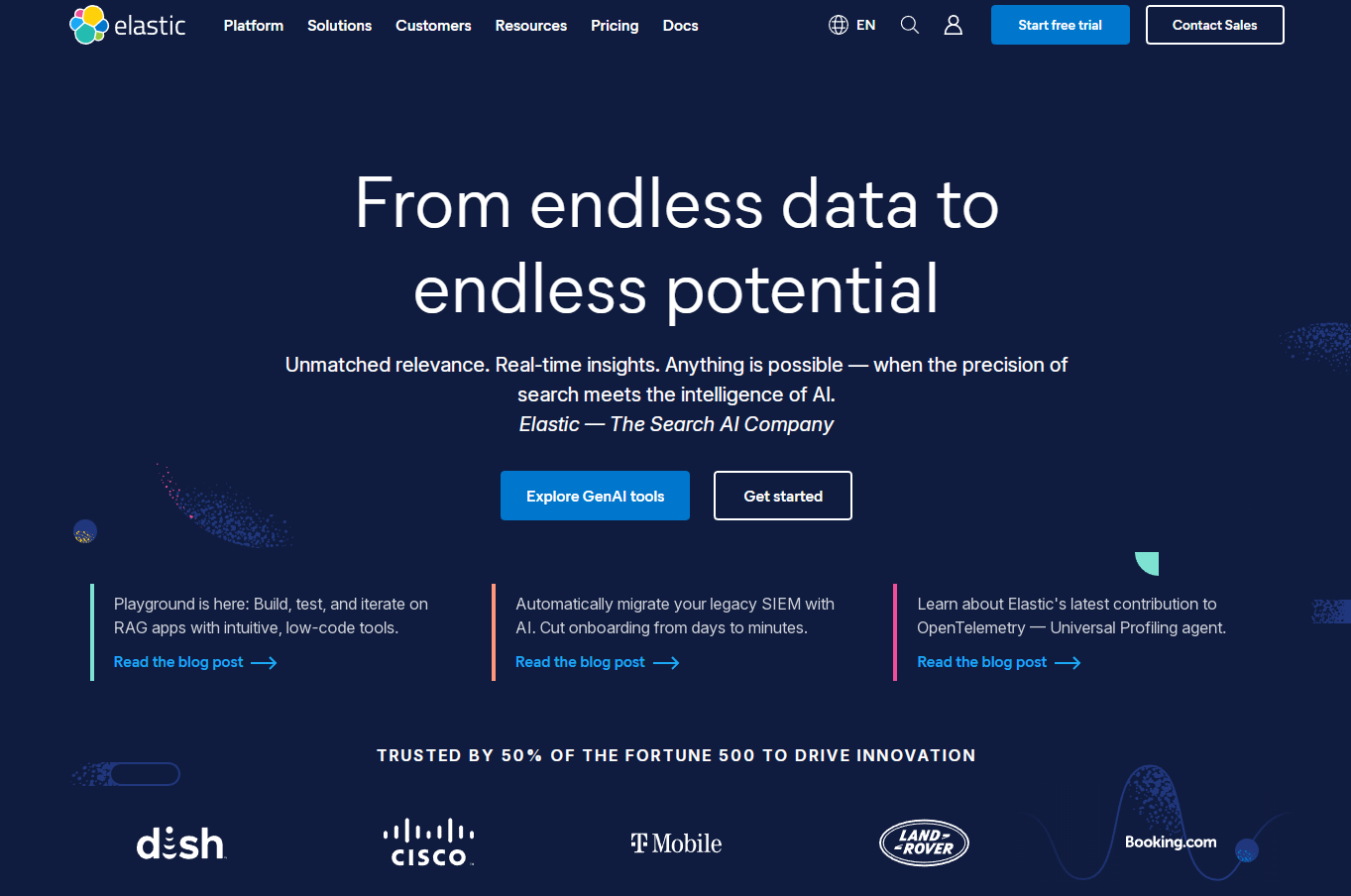











What is Elastic Search?
Elastic Search is an open-source, distributed search and analytics engine designed to handle large volumes of data in near real-time. It is built on top of Apache Lucene and is supported by Elastic N.V., a company that provides commercial support and additional features. Elastic Search is widely recognized for its scalability, allowing it to manage large datasets across multiple nodes in a cluster, making it a popular choice for enterprise search, log analytics, and monitoring applications.
Features:
1.Scalability: Elasticsearch can scale horizontally and vertically, accommodating large datasets and high query loads by distributing the workload across multiple servers.
2.RESTful API: It provides a RESTful API for interacting with the search engine, supporting a wide range of query types including full-text search, phrase search, and aggregations.
3.Full-Text Search: Elasticsearch excels in searching through large volumes of text data, offering features like fuzzy matching, stemming algorithms, and synonym definitions for more accurate search results.
4.Real-Time Data Processing: It can ingest, store, search, and analyze data in near real-time, making it suitable for applications requiring up-to-date information.
5.Faceted Search and Filtering: Elasticsearch supports faceted search, allowing users to refine search results based on various criteria, and filtering to narrow down results.
6.Aggregations: It offers powerful aggregation features to perform calculations on data, such as counting occurrences of certain values or calculating averages.
Target Audience:
1.Enterprises: Companies looking for a scalable solution to manage and analyze large volumes of data for various purposes, such as log analytics, security intelligence, and business analytics.
2.Developers: Software engineers and developers working on applications that require advanced search capabilities, such as e-commerce sites, content management systems, and social networks.
3.Log and Event Data Analysts: Professionals responsible for monitoring system logs and events, who need a tool that can quickly process and analyze large datasets in real-time.
4.Researchers and Scientists: Researchers and scientists who work with large datasets and require a powerful tool for data exploration and analysis.





